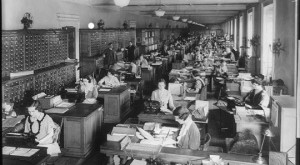Tag: cataloging
The primary purposes of a library include collecting information, and then organizing that information or knowledge in its collection into some systematic order so that it can be easily retrieved and used. Tools used to organize knowledge include classification systems, controlled vocabularies, and the library catalog. It is the thesis of this paper that the implications of knowledge organization systems should be further investigated as purposive human activities that influence people’s understandings and perceptions. In this regard, the works of Michel Foucault on discourse and power are helpful in examining knowledge organization practices. Discourse can be defined as a set of rules, usually expressed through language and behavior, which limits what can be said and thought about a phenomenon, and how it can be analyzed and evaluated. Discourse shapes knowledge, defines what is “normal,” and so is a form of power and influence when embedded in institutional practices. Despite the application of Foucault’s theories in LIS scholarship, there remains a need to analyze the library as an institution for discursive activity. One way to start such an analysis is through an organizational ethnography of knowledge organization activities that take place in libraries.



